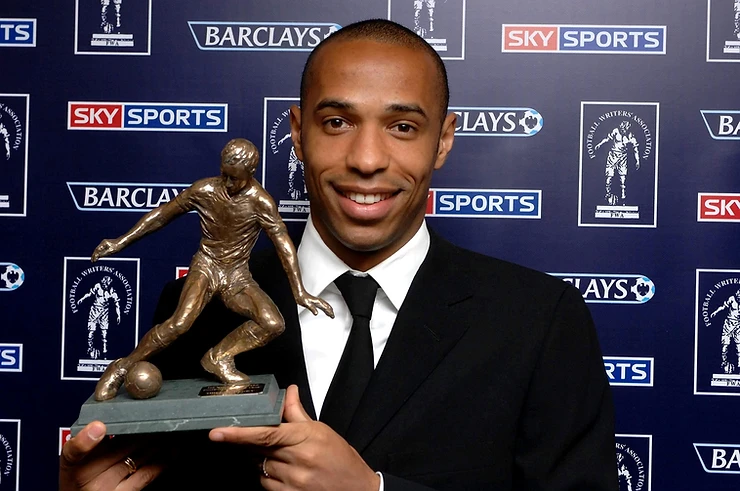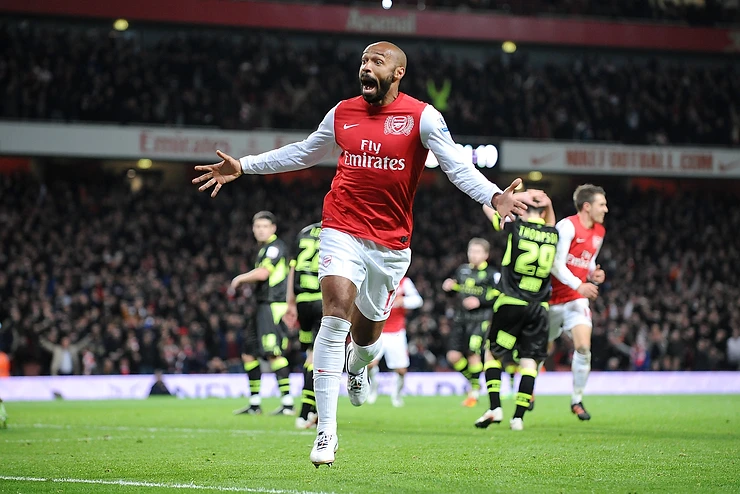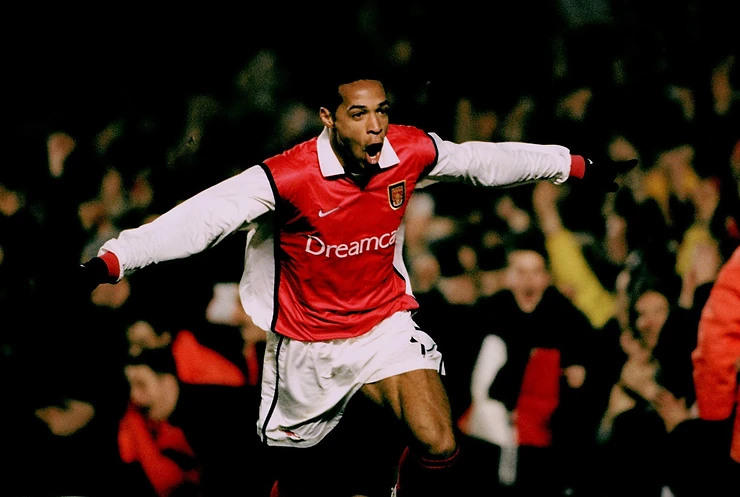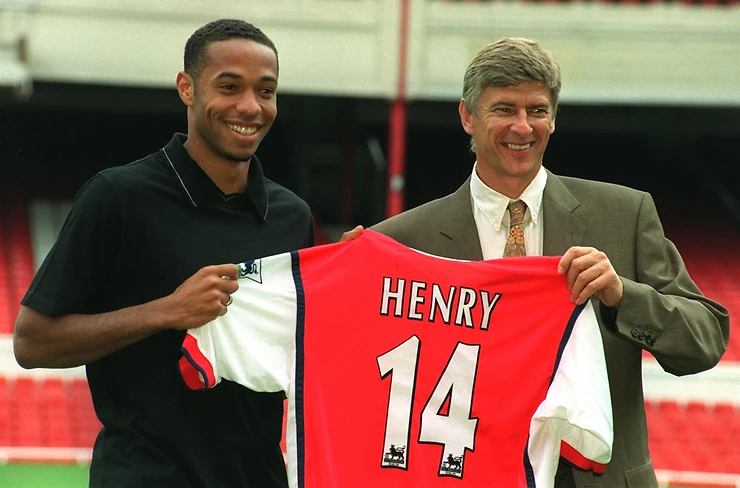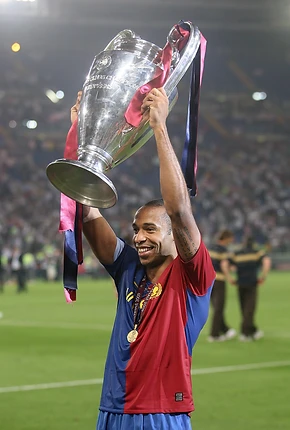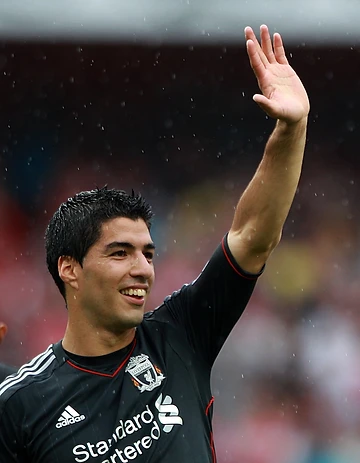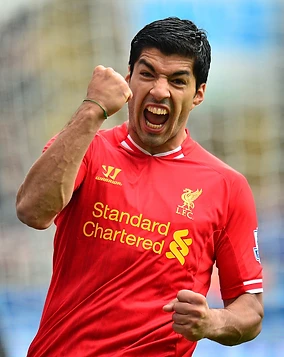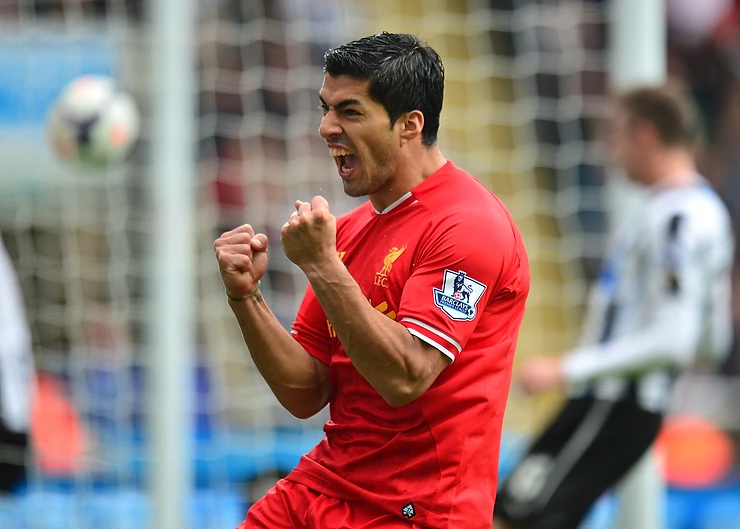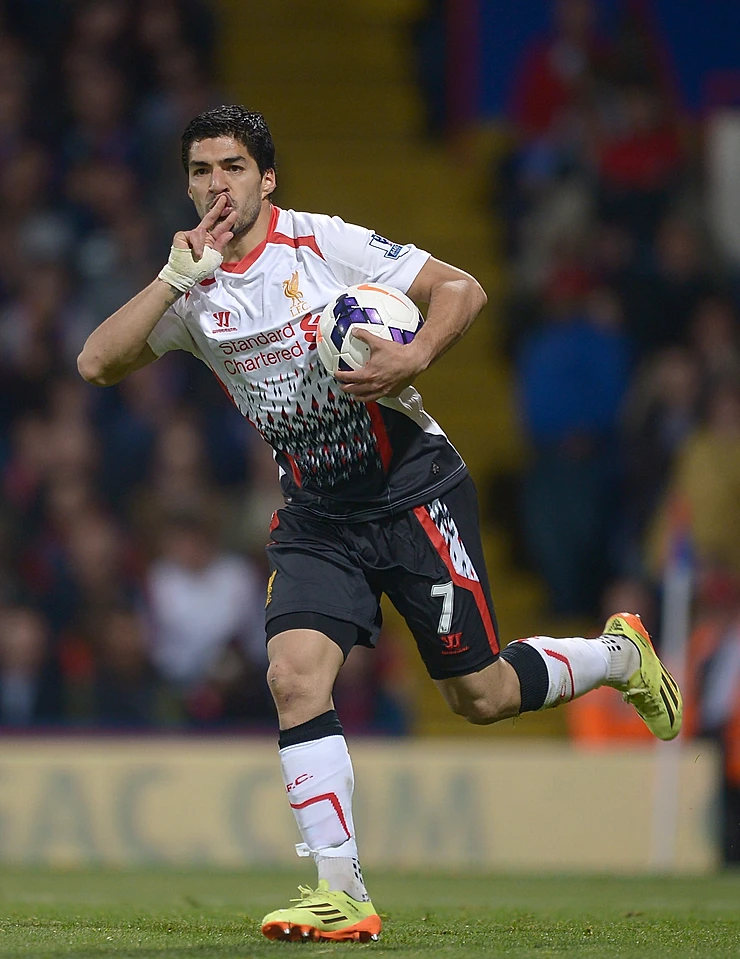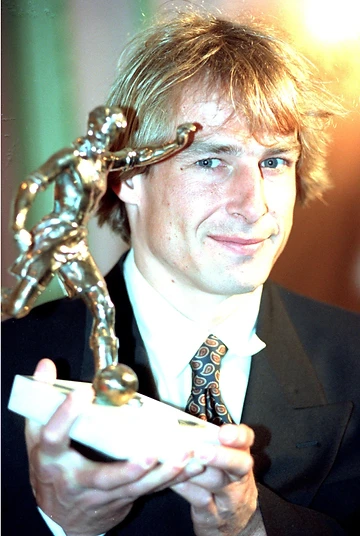
Klinsmann’s move to Tottenham Hotspur came somewhat out of the blue and was a remarkable coup for Spurs to sign a player who had just scored five goals at the 1994 World Cup.
The German settled into life in the Premier League quickly and instantly became a fan’s favourite after scoring on his debut and celebrating in what became his trademark ‘diving’ style.
Klinsmann netted 30 goals in all competitions in his only full-season with the club, forming a formidable strike partnership with Teddy Sheringham.
Klinsmann scored in his first seven successive appearances for Tottenham and added many more across the season, including some fabulous goals.
It was this goal scoring ability, combined with the link up play with Sheringham that saw the striker elected Footballer of the Year for 1995. Later that year he was to come second in the voting for Ballon d’Or winner, missing out to AC Milan’s George Weah.

After only one season in England Klinsmann moved back to Germany to play for Bayern Munich. He went on to win the Bundesliga title and the UEFA Cup with Bayern, scoring an impressive 15 goals in just 12 matches in the European competition.
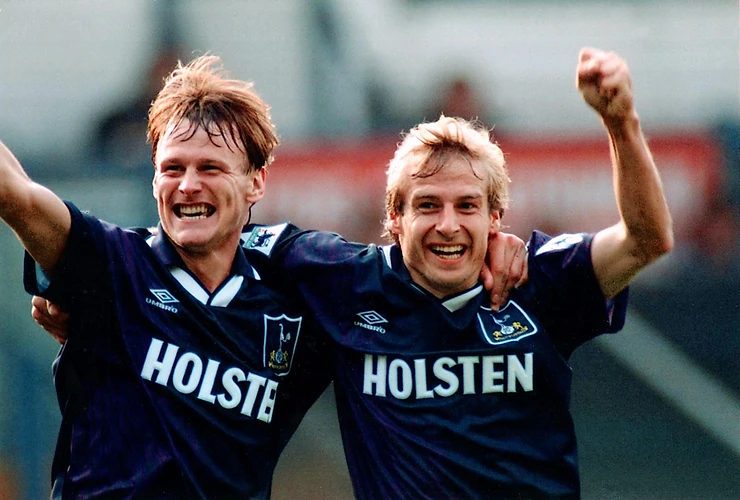
In late 1997 Klinsmann returned to Spurs for the final months of his playing career. Tottenham were involved in a relegation battle and the German’s nine goals in 15 games made all the difference in their fight for survival. None more so than the four he notched against Wimbledon in the penultimate game of the season to ensure the club’s survival in the Premier League.
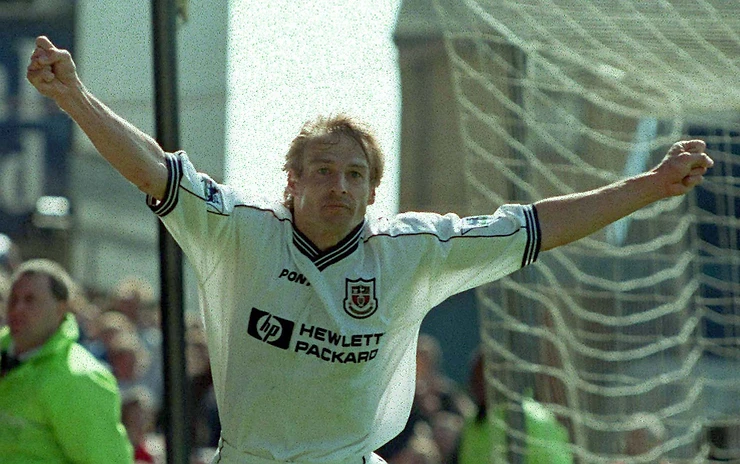
Klinsmann had an exceptional international career scoring 47 goals in 108 caps for West Germany and Germany. This made him both the second highest scorer and second most capped player at the time of his retirement.
His three goals in the 1990 World Cup for West Germany helped them lift the trophy for the third time.
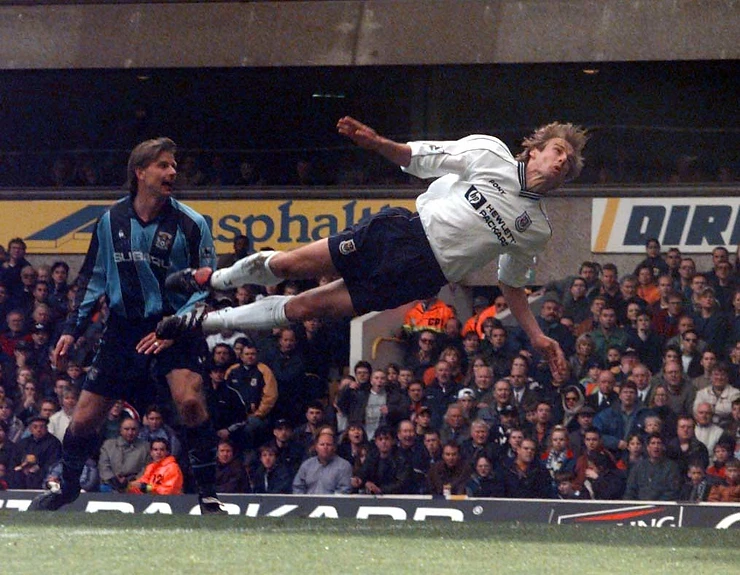
What Jurgen said:
“It was my 28 goals during the season that helped me clinch the Footballer of the Year award and I was thrilled to become the second German after Bert Trautmann to be honoured with the selection. Bert made a special trip to see me collect the award, and we had a long talk about the way the game has changed.
“When I accepted the trophy, I had mixed feelings because I knew that I would be shortly leaving a club that will always have a special place in my affections. I made a point of thanking Teddy Sheringham for his contribution. He and I had a great understanding, as the 38 goals we scored between us in the Premiership proves.
“It was an extremely satisfying way to end my stay in England that I will always look back on with pride… and fond memories.”




